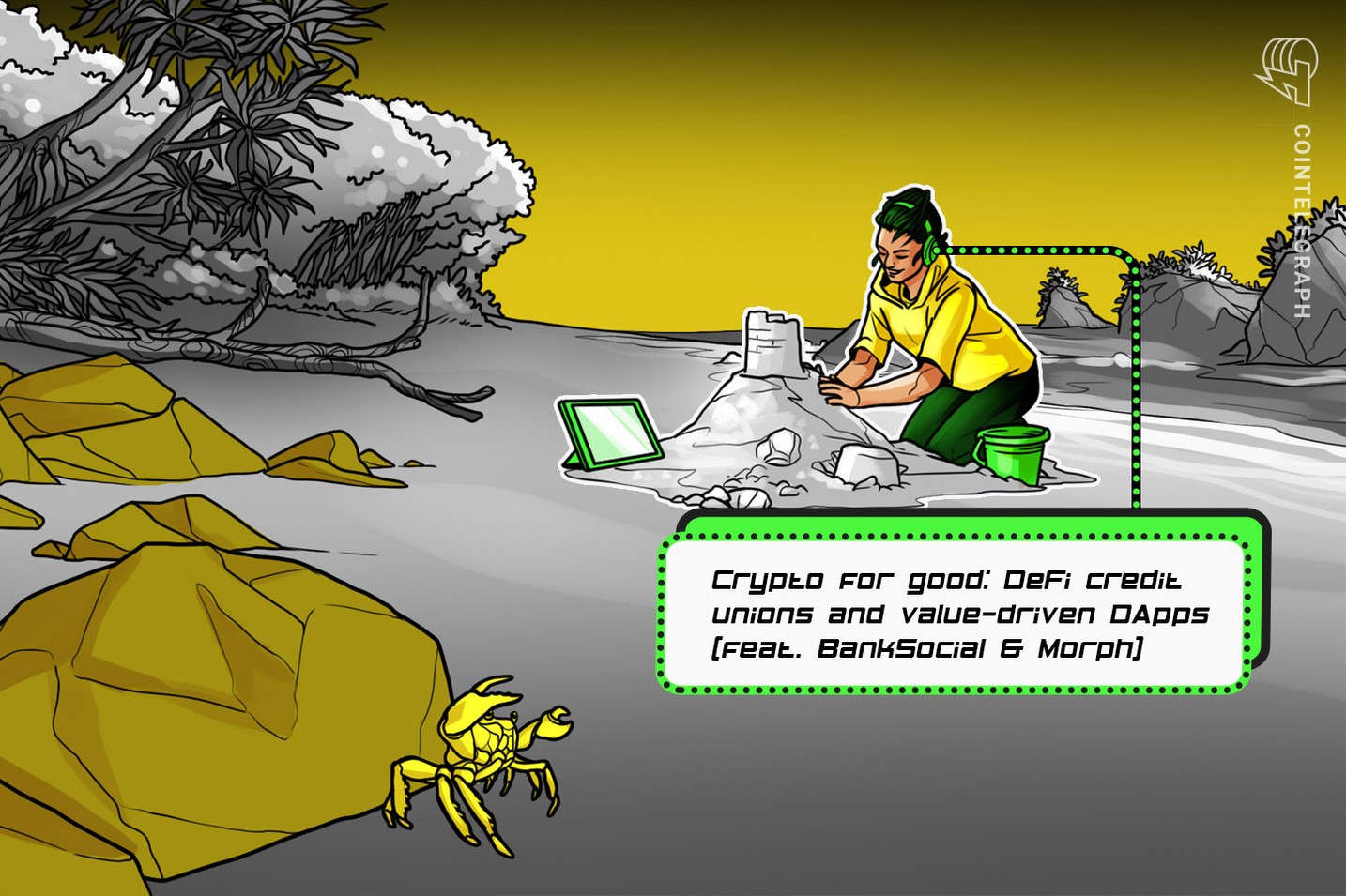Speculative investing, destroying the environment and scamming innocent people: If you ask the average person on the street what crypto and blockchain are useful for, these are a few of the answers they may give you.
Crypto skeptics have long pushed the narrative that there are no real ways for blockchain to help everyday people around the world. This perspective is perhaps understandable, considering that most of the headlines that make it into traditional media and, therefore, the minds of the Average Joe highlight the most negative aspects of the space.
At the same time, regular people who could benefit from crypto tools may feel it a bit overwhelming or risky to dive into the technology. On Episode 40 of The Agenda podcast, hosts Jonathan DeYoung and Ray Salmond speak with two builders working to bring the benefits of decentralized technology to those who need it most: John Wingate, founder and CEO of BankSocial, and Azeem Khan, co-founder and chief operating officer of Morph.

This episode is the final in a series of interviews recorded in-person at the Consensus 2024 conference in May.
Bringing DeFi to credit unions
Wingate explained to The Agenda that BankSocial aims to financially empower regular people by building user-centric products for people and for credit unions. In his words, part of the project’s founding mission was to advance “the marriage of DeFi and TradFi” by starting “the first credit union that focused on Web3,” as well as to bring the same capabilities to credit unions around the world.
Credit unions, a type of member-owned bank, are a natural companion to crypto because they “align very closely with the ethos of the ownership, Web3, decentralized economy,” argued Wingate. And because they are regulated banks, credit unions are allowed to issue securities — allowing their members to access crypto products with fewer potential regulatory concerns.
Wingate believes that bridging traditional finance and decentralized finance allows people to enjoy the benefits of both in harmony:
“BankSocial is about creating that platform that regulated financial institutions can deploy as a complete platform that plugs us into the ownership economy, that bridges a regulated TradFi institution with all of its connectivity into central banking rails that are needed.”
Building an L2 for value-driven DApps
Khan jokingly acknowledged that Morph, an Ethereum layer 2 for value-driven decentralized applications, is “one of the what must be 200 L2s at this point.” However, he told The Agenda that what sets it apart is its particular focus on “crypto-for-good activities,” such as bringing blockchain to emerging markets, experimenting with public funding mechanisms and advancing decentralized science.
He pointed to his experience as the child of Pakistani immigrants, learning early on that it was difficult for his parents to send money back to their family through traditional payment rails. “It was something that was difficult and only really reinforced the idea of figuring out what we need to do for people in developing parts of the world to get access to some sort of infrastructure,” Khan said.
In addition to having less cross-border friction, Khan said the transparency and decentralization of public ledgers are another benefit the technology brings in building a better world. And ultimately, Morph is committed to not just talking the talk but actually doing the work to use crypto for good:
“Looking at the ways in which this technology can actually be used to empower people globally is something that’s really important to not only think about, which we see often, and it’s been a talking point for so long, but what are the things that we need to do in a methodical way to actually start to tackle the problem?
To hear more from The Agenda’s conversations with BankSocial’s Wingate and Morph’s Khan, listen to the full episode on Cointelegraph’s Podcasts page, Apple Podcasts or Spotify. And don’t forget to check out Cointelegraph’s full lineup of other shows!
